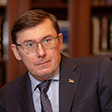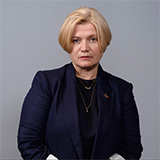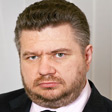21 лютого 2013, 18:52
WELCOME TO BRUSSELS PRESIDENT YANUKOVYCH!


http://www.europeanvoice.com/article/imported/ukraine-must-show-the-eu-it-is-serious-about-reform/76475.aspx
Ukraine must show the EU it is serious about reform By Andrew Gardner –
As soon as Ukraine meets the technical conditions, the EU's member states should then relax entry for Ukrainians.
Many in Europe take a grim view of Ukraine. Their view is unlikely to be improved by reading the assessments of Ukraine's problems by the country's own prime minister, Mykola Azarov (see page 12). In fact, Azarov is too harsh. His depiction of ordinary Ukrainians verges on insulting, and the EU's decision last March to initial an association agreement shows that Ukraine has made a good deal of progress, at least at an administrative level.
Still, the Ukrainian government is right in the case that it frequently makes – that easing, or removing, travel restrictions on individual Ukrainians would help advance public attitudes on many issues. Ukraine has begun introducing biometric passports and as soon as it meets other technical conditions, the EU's member states should hurry to relax entry for Ukrainians.
One benefit of that would be to remove an issue that obscures from the Ukrainian public what is really at stake in the EU's talks with Ukraine. The fundamental uncertainty now is about how committed Ukraine's leaders are to political reform.
Viktor Yanukovych, the country's president, will be in Brussels for a summit on Monday (25 February), carrying an action plan of legislative measures for the year, with promises of reforms intended to convince EU member states that they should ratify the association agreement. He will want to take back to Kiev some pledges from the EU that it will contribute to a package of international financial support for the Ukrainian economy. But more importantly, he needs Herman Van Rompuy and José Manuel Barroso, the presidents of the European Council and the European Commission respectively, to tell the leaders of the EU's member states, on whom ratification of the association agreement depends, that they believe Yanukovych is willing to take the political risks of carrying out genuine reform.
The trickiest – and most personal – assessment is about Yanukovych's approach to the future of Yulia Tymoshenko, the jailed leader of the opposition. He is in a Catch-22. A court sent Tymoshenko to prison and it will be courts – Ukrainian and European – that will have to determine what happens to her, a point that Tymoshenko does not always seem to appreciate. EU officials do recognise that, and are careful to depersonalise the issue of 'selective justice'. But if this knot can only be untied by the courts, how can Yanukovych convince the EU's member states to sign the association agreement, when the Commission has already determined that the jailing of Tymoshenko was a case of selective justice?
Yanukovych's only viable option is to reform aggressively at home along the lines demanded by the Commission, reinforcing this by showing what Ukraine is capable of internationally, especially in pushing for progress in the frozen conflict in Transdniester.
His temptation will be to point up the Catch-22, to quibble about the EU's approach, to defer reforms, and to hope that the Tymoshenko case will be resolved only after presidential elections in 2015. But the EU's best offer for some time – the signing of the association agreement – is on the table for this year, not 2015.
Yanukovych cannot expect the EU's member states to take gambles on Ukraine, if he himself is not prepared to take gambles on reform that he says are in Ukraine's own interests.







